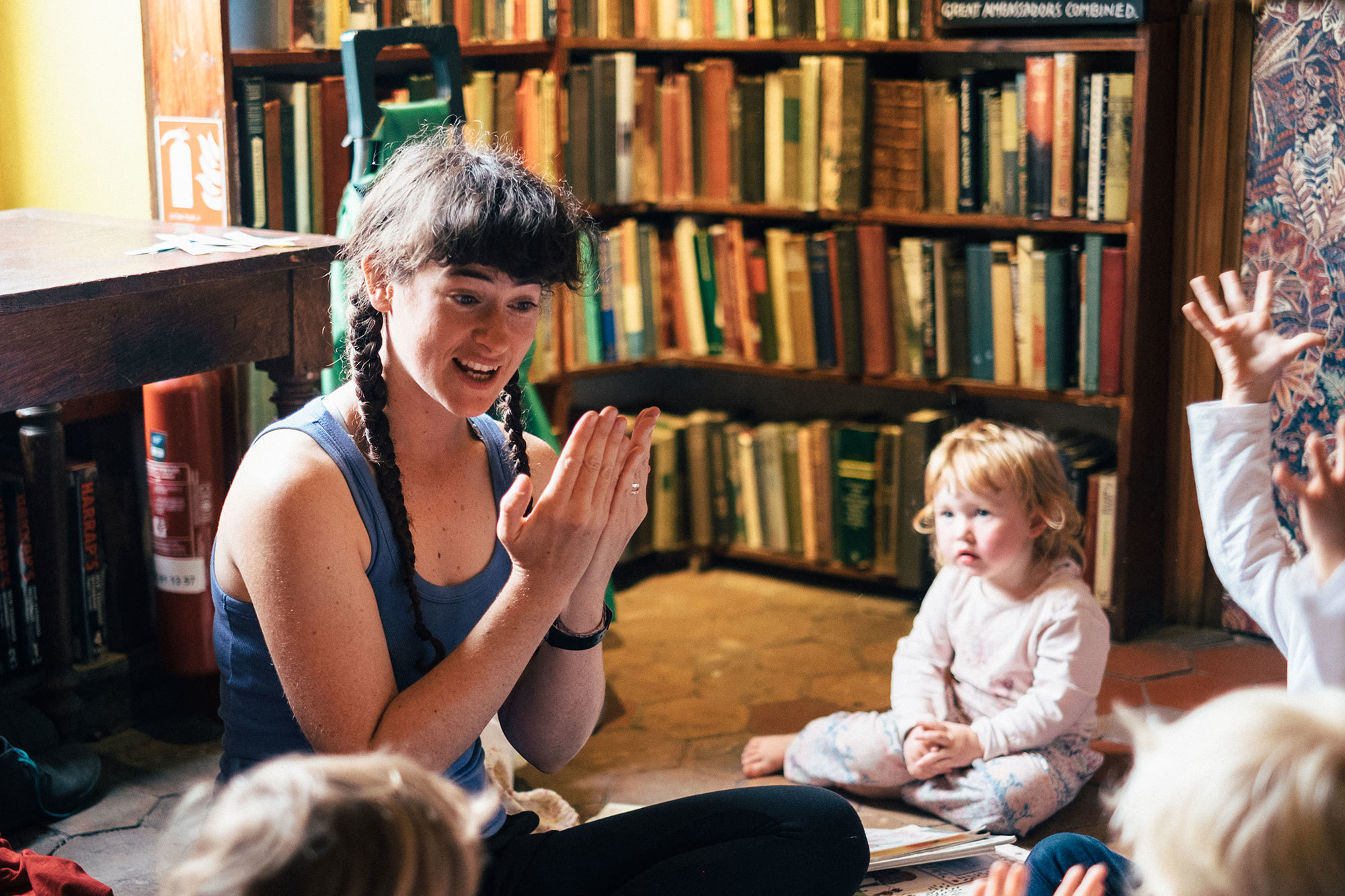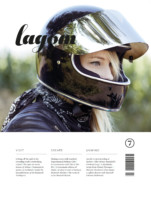A lot seems to have taken off since your last album, Bashed Out, was released — has anything changed in how you approach your work?
There’s a natural change that happens with anyone, with any sort of work that they do — a gradual change, probably. I still work in a similar way: I need to be on my own and write things down in the gaps, between touring and gigs.
You’ve been on the road a lot lately — how does that rhythm affect your creativity?
When you travel, your brain gets into a different sort of gear or frequency, and you spend a lot of time in the back of a car, in your own head. There’s stuff that churns around and gives you ideas. Looking out of the window to a fairly neutral landscape, like the passing of trees, puts you in a different state.
When you’re touring, you get tired, and that makes your brain function on a different level as well. It can often lend itself quite well to creativity or writing, even though it can be dangerous if you teeter into a sort of desperate exhaustion zone.
Sometimes it’s really good to be in a totally different state — it helps for writing if you can find time, and if you don’t get too queasy sitting and scribbling in the back of a car. It’s such a different rhythm; you’re on a sort of conveyor belt as well: up at eight, in the car, drive for five hours, get out of the car, do the gig! It’s set up and structured for you, so the gaps in between become real gaps.

Kate plays us a selection of musical influences, on vinyl and cassette, in her Paris home.
As a contrast to being on the road, there’s a line that stood out from the song ‘Show Me So’: “So that I know we have a home.” What creates a sense of home for you?
On one level, that song is personal and it’s my own reflection on home, but it’s also thinking of other people, of what home is for them. My idea of home is just being still with people: sitting and being with my family. But there’s no denying that when you can go back to your own space, it’s amazing, even if your family aren’t there. It’s not very original, but where I live, and who I live there with, are my home. And because we’ve been on the road together for so many years touring, I feel like being on tour, with my band, is another home. It’s an important part of my existence.
Do you associate Paris with home now?
Yeah, totally — that’s where I miss. I miss people from all over the place whenever I’m not with them, but definitely Paris is home; it’s really hard being away.
How much of Paris seeped into your new album?
Since Paris, I’ve listened to a lot more African music, and there are a few things like all of the Radio France Ocora recordings — some of the records are just incredible. I’ve got a lot more into field recordings, tribal music, and music from other countries and cultures since living in Paris, but maybe that would have happened anyway.
This album’s quite personal; it’s to do with my relationship with home, the people I’m with — in that way, Paris is in it. Paris finds its way into my writing long-distance, when I’m touring, rather than soaking up stuff first-hand. It can be hard to know what’s in there until after you’ve really stepped back.
You’ve spoken previously about balance. Is it something that you’re still cultivating?
I’m still working on balance. I wonder if I’ve always been working on it. It’s easy to be suggestible, but I feel like I’m a real Gemini; the different points of view I can have on a situation, balance comes into that. It’s really key to health — emotional, psychological, physical health. Everything’s about balance, really. You can’t overdo one area, or it all gets tipped up.
A friend of mine did a degree in holistic nutrition, and one of the elements — it’s definitely more complicated than what I’m about to say — is nutritional balance. Primary nutrition is going for walks, or listening to music, going to concerts, playing... stuff that feeds your soul. Secondary nutrition is food, basically. They have to be in balance, or you’re not okay. I often find myself thinking about that. People overlook primary nutrition, because they think, “I should be working”. We guilt-trip ourselves into not taking enough time to breathe and do what makes us happy. Those things are not luxuries. For me, it will always be a case of getting the balance right between being away and on tour, and being home, making sure that my family’s a family!
How do you deal with transitions? Such as moving to France, or coming back home after being away on tour?
It’s really hard, and sometimes it goes better than others! When I first moved to France, I found it an almost violent experience. It felt like I was going through some sort of time portal — space travel or something. I can manage the physical transition be er now.
Entering back into the touring group or the family group, you have to be awake and careful. Quite often, when I go home, the first week or so is just people bursting into tears, or slamming doors! You have to pay attention and be respectful, especially to people who are so young that they can’t explain stuff to themselves; they don’t necessarily know what’s going on. I have to remember to make enough space for that. Unfortunately, the knock-on effect is that the adults get a bit neglected because the younger people with less experience are getting more time.
The way you speak about your approach to music or to life sounds like a practice.
Life is a practice — you do have to be aware. You have to remind yourself to do and think certain things, and to not think certain things. That is life; there’s no, “ah, nailed it now”. There’s no arriving anywhere! You have to constantly be paying attention, adjusting.
Kate hosts a regular singalong session for toddlers at Paris’ Shakespeare & Co. bookshop. (This session was enjoyed immensely by our daughter Thea.)

There’s quite a strong contrast in a lot of these songs between happy sounds and the darker undertones of the lyrics. Is that the Gemini influence again?
Definitely. I feel like I’ve always had that a little bit. With my first album, people would say, “Oh it’s such a sad, melancholy album,” when all of the songs are happy love songs, with slight, fairly positive ponderings about life. It was interpreted as quite a sad album. Then the second album was musically more upbeat and foot-tappy, perhaps, but it came out of a much harder time. So that might be what I always do — it sounds different to what I’m saying. My lyrics are a bit coded, sometimes. It’s not fair to be literal and say everything about my private life; not fair to people who are involved in my private life. So I find myself not naming-and-shaming situations or people. It means it’s open to interpretation. It’s mainly a transmission of energy and feeling that is there for people to interpret, rather than, “This is definitely a song about Tuesday the 27th of October, when I had beans for breakfast”! So often, the music can be misleading. You listen to the lyrics and there are two sides to everything, I guess — again, the balance and the Gemini factor!
You’re quite open about your politics and social issues — do you see that as an artist’s responsibility, or is that you being Kate?
I feel like it’s my responsibility. I’m not as engaged and involved as I would like to be, or as I should be. It would be great if I found more time to be out on the streets talking to people and making a more direct change. For that reason, it’s even more important that I talk about stuff when I can. I definitely don’t claim to be a clued-up, savvy political mind — that’s not the case at all. It’s time for everyone to stop feeling shy or embarrassed about not 100 per cent understanding politics or how the government works.
We need to work on our own communities in order to be able to help further communities. We need to help each other as humans, because most politicians won’t help us. Some of them will. But they don’t have a very easy time of making a change, because the politicians that aren’t interested in the people shunt them out of the way. So it’s up to us to make sure that the people that we believe in and trust in are up there and out there, able to do good work.

This story was first published in the print edition of Lagom #7, which is available to buy from our online store and stockists all over the world.
Buy Lagom #7